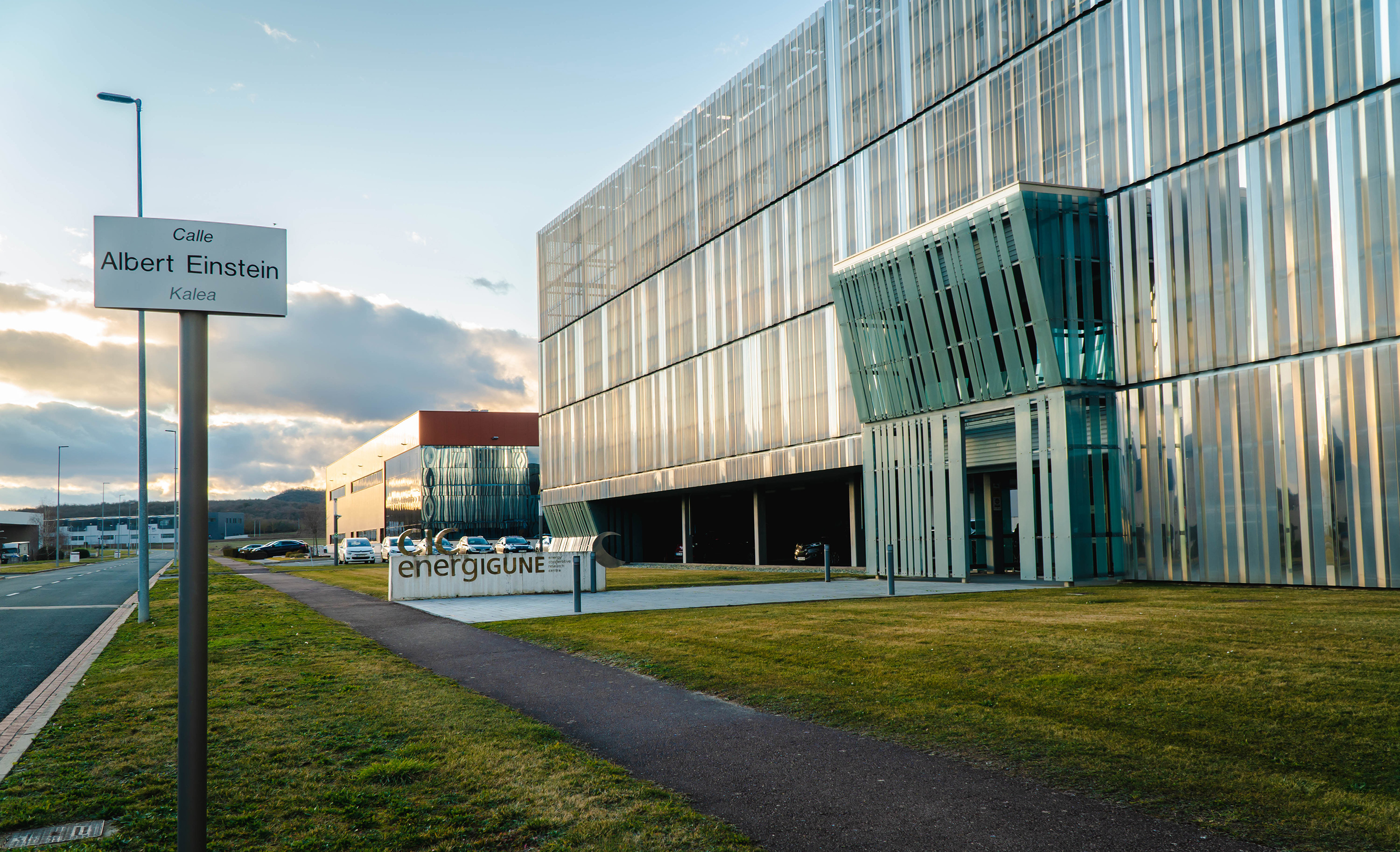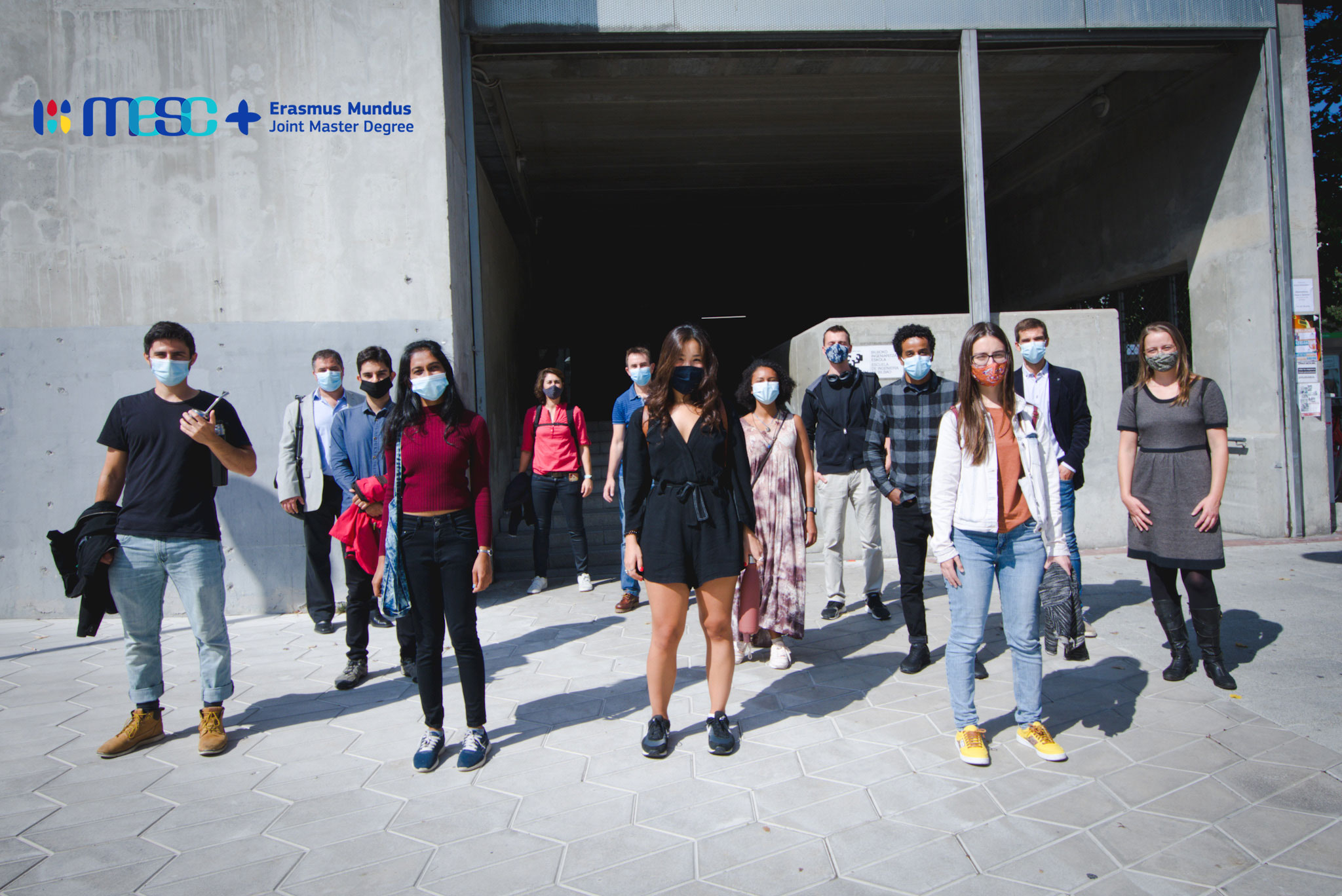CIC energiGUNE, the Basque research centre of reference in electrochemical and thermal energy storage and a member of the Basque Research & Technology Alliance-BRTA, will broaden, as of this school year, its relationship with the master Materials for Energy Storage and Conversion MESC+ Erasmus Mundus, one of the most internationally prestigious and recognised in its field. The Basque centre, at which for several years MESC+ students have done their internships, will now teach this master, in collaboration with Universidad del País Vasco / Euskal Herriko Unibertsitatea (UPV/EHU).
“Bringing this master to the Basque Country entails a true milestone for our academic and research ecosystem and shows that our organizations are living up to a demanding challenge, such as this one”, has pointed out the General Manager of CIC energiGUNE, Nuria Gisbert. “An important and sustained effort has been made to achieve the presence of MESC+ in the Basque Country, and the fact that it has been reached, consolidates our position as a new point of reference in everything dealing with energy storage”.
The Engineering Faculty in Bilbao, of which its facilities will be used for the theoretical classes, has hosted this morning the presentation of the master’s new edition, at which the content of the course and the workings of the Chemical and Environmental Engineering Department at UPV/EHU and CIC energiGUNE have been made known to the student body. In spite of the fact that classes will start this year 2020, CIC energiGUNE’s collaboration with MESC+ dates several years back. Specifically, the centre has taken in several master students during their internships, some of which have decided to work on their Doctorate at the headquarters in Álava’s Technology Park.
The course, of which its first edition was celebrated in 2004, has a two-year duration and is divided into four semesters, the third one can be done at the Faculty of Engineering in Bilbao. On CIC energiGUNE’s side, the person responsible of the teaching staff will be the Scientific Coordinator of the electrochemical energy storage area, doctor Montse Casas-Cabanas. Moreover, the research centre will host several practical classes making its first-rate facilities available to the students. By its part, the UPV/EHU’s teaching staff coordinator will be Ion Agirre Arisketa, associate professor of the Chemical and Environmental Engineering department at the Engineering Faculty in Bilbao.
In addition to CIC energiGUNE and the UPV/EHU, the team of participating entities in the master consists of four European universities (the University of Picardie Jules Verne, in France, as coordinators of the master with professor Christian Masquelier taking the lead; the University of Ljubljana, in Slovenia; the Paul Sabatier University in Toulouse, in France; and the Warsaw University of Technology, in Poland), a university from the United States (Drexel, Pennsylvania), a university from Australia (Deakin), the European research institute ALISTORE, the French network of energetic storage RS2E and the National Slovenian Institute of Chemistry.
The master MESC+ Erasmus Mundus has strengthened its position as one of the highly qualified leading educational programmes facing the new needs and challenges of the decarbonised economy. In this spirit, energy storage and conversion are fundamental concepts in order to face challenges such as global warming and energetic security.
The master’s thesis can be done in 30 associated laboratories from universities and companies such as BOSCH, UMICORE, RENAULT, TOTAL, SOLVAY, SAFT, EDF y SOLVIONIC, which require engineering and research professionals who are qualified for the development of sustainable ultra-high performance batteries with a long service life. In this sense, the course opens the doors to employment at companies working in this field and betting on the field’s development.





